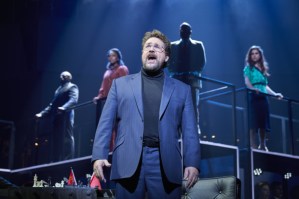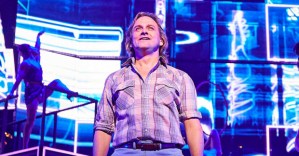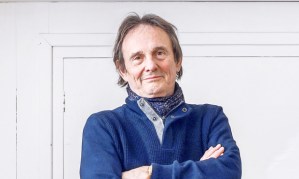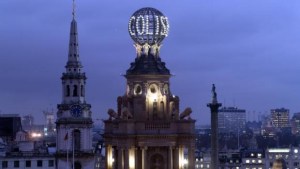Review: Chess (London Coliseum)
Benny Andersson, Björn Ulvaeus and Tim Rice’s musical returns to the West End for the first time in 30 years
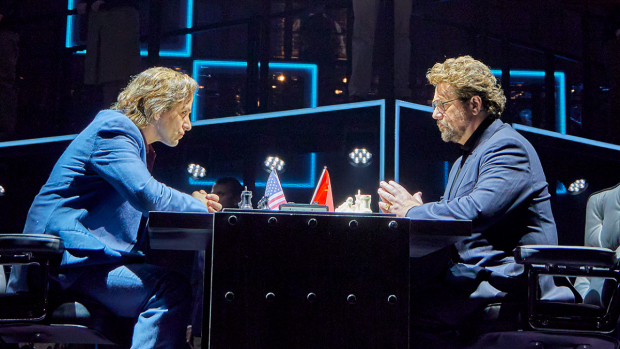
© BrinkhoffMögenburg
Some shows are born lucky; others have to wait a while before audiences take notice. Take Chess, the love-child of Tim Rice and the boys from Abba: it's been largely neglected for three decades but its time may finally have come. The fictional tale of a world chess championship between two rival grand masters, one American, the other Soviet, shivered in the Cold War just when East-West relations in the real world were beginning to thaw. Bad timing. Today though, as a new diplomatic chill descends, it reeks of prescience. The petulant US guy is even called Trumper, like a cross between a president and a rabbit.
Another pointer to the show's rehabilitation is the decision by English National Opera and producers Grade and Linnit to pick Chess as their annual musical following a run of successes with Sweeney Todd, Sunset Boulevard and Carousel. Given the sweeping orchestrations by Anders Eljas plus abundant opportunities for ENO's award-winning chorus, it's a shrewd choice for an opera house; and if any director can fill the vast Coliseum stage it's today's go-to man of musicals, Laurence Connor. To cap it all, in case you missed it, a newly-reunited Abba is back in the headlines.
Chess has a simple enough core story – man leaves wife for another woman; man returns to wife in an act of self-sacrifice – but the labyrinthine political undertow can be hard to follow, if not to swallow. For this production the writers have tidied up the narrative with snatches of spoken exposition, sliced away some flab and provided a new song for the undernourished role of Svetlana, the Soviet contender's wife and eventual pawn in a very different kind of game. But ENO's pitiless sound balance undoes much of this improvement by obliterating many of Rice's best lyrics, while the show's conclusion remains much as it was: a musically dull quarter-hour.
The best songs are superb, that million-dollar Abba sound elaborated and enriched by Rice's witty contributions. Trumper's "Pity the Child" is a maudlin epic: a self-absorbed confession that develops his character with assured theatricality. It's the show's "Gethsemane" and a moment of masterly inspiration that Tim Howar delivers with a heart full of bile and the sensibility of a rock god. His performance is dazzling throughout, from his spectacular arrival on a private jet (video trickery, natch, courtesy of Terry Scruby, who's a busy man all evening) to the showstopping "One Night in Bangkok".
Michael Ball is in rafter-rocking mode as the hero, Anatoly Sergievsky, and his delivery of the great "Anthem" is prodigious. Yet the show is not always kind to his character, making him its anchor but rarely letting him drive its engine. Cassidy Janson fares better as Florence, the Anglo-Hungarian with Russo-American connections. Her parade of great numbers suits her belting musical theatre tones to a T, whereas Alexandra Burke as Svetlana seems miscast in a part that gives her soulful voice little to chew on.
Connor's production scores heavily in its depiction of Cold War parallels, with chess as just one weapon in the armoury of both sides. Anyone old enough to remember the Bobby Fischer-Boris Spassky confrontations in the early '70s will recognise the allusions that form the basis of Chess. In partnership with choreographer Stephen Mear, the director spreads a gigantic cast across Matt Kinley's sprawling, kinetically restless multi-level set, yet always maintains a confident inner logic.
John Rigby and the massed musicians of ENO Orchestra hide in plain sight, set on high and close enough to the roof to raise it – which they do. A roaring first-night audience helped in that. Chess is back, and it's a matchwinner.


